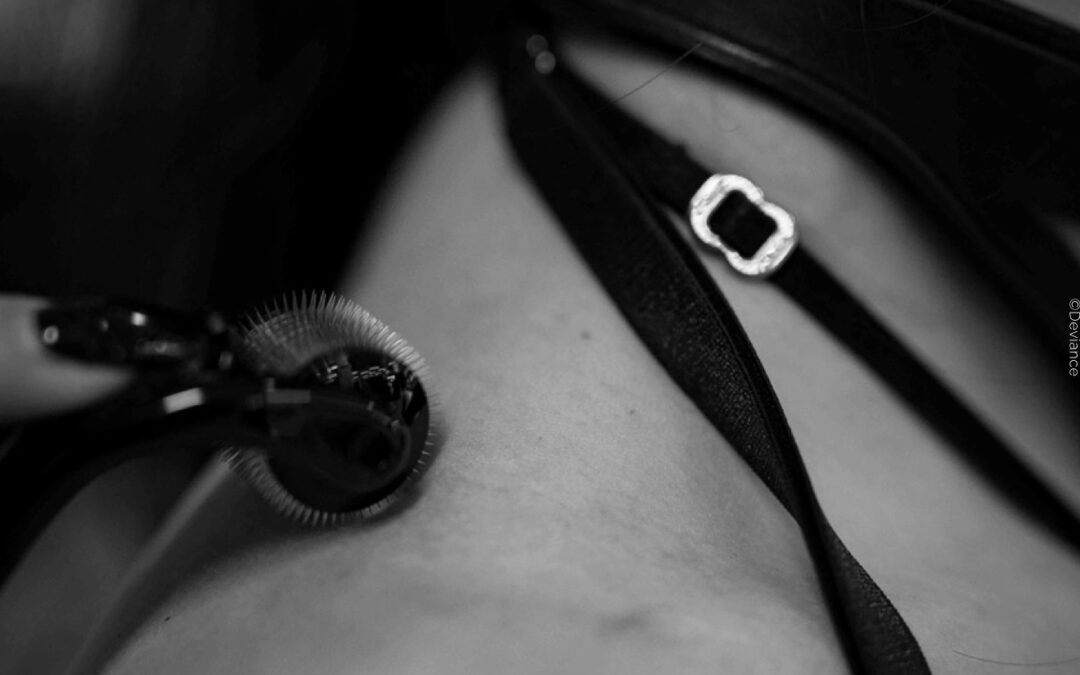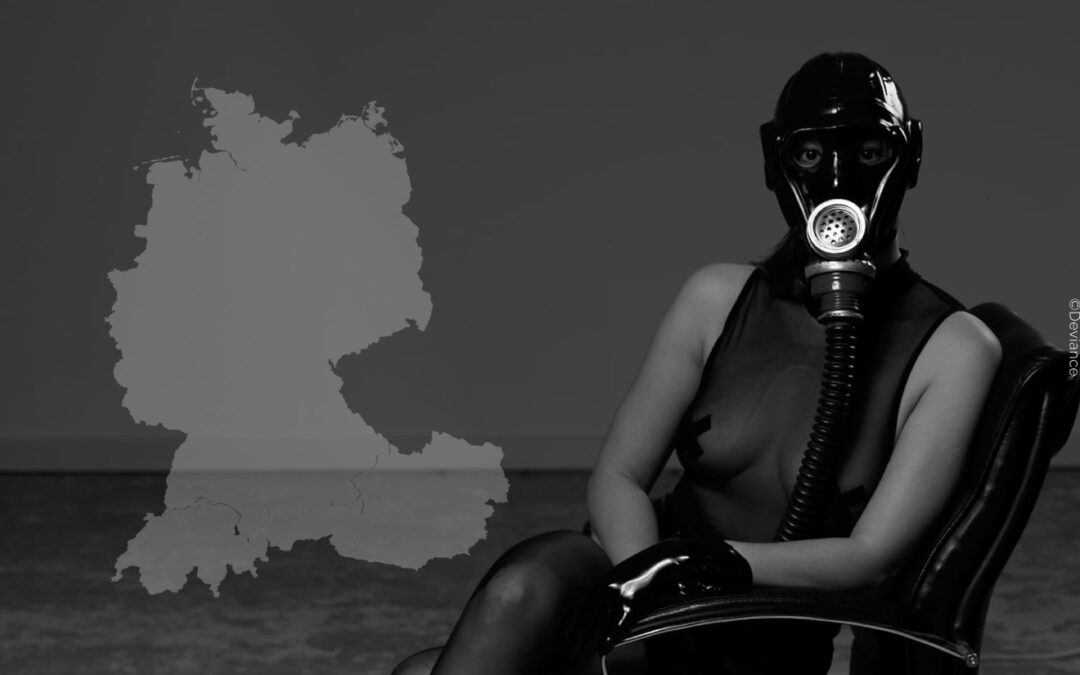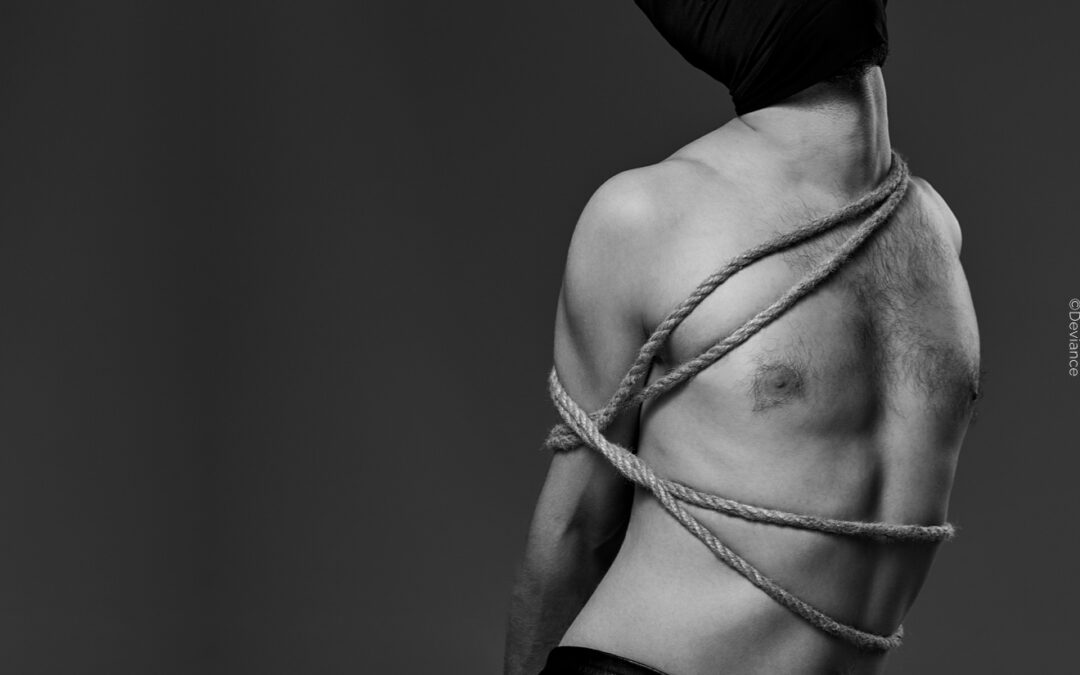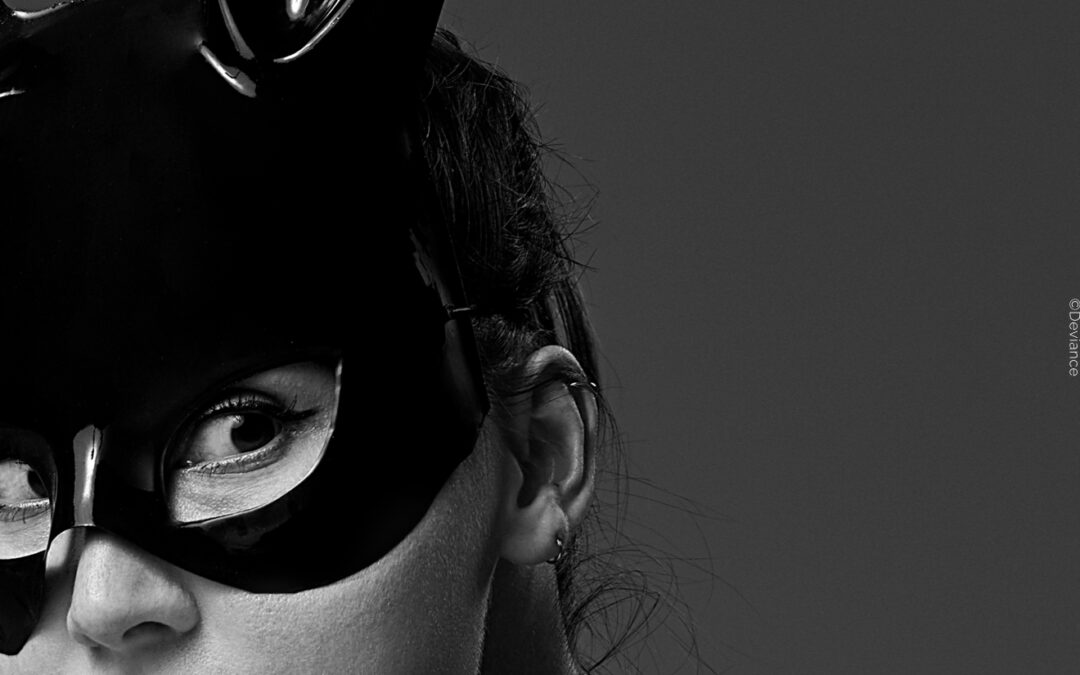This article about kink shaming is based on a post from our friends at bunt_lieben, a Swiss project that advocates for greater visibility of the diversity of love, sexuality and romance.
What does kink shaming mean?
Kink shaming describes the devaluation of a person based on their sexual preferences, such as being sexually aroused by wearing specific clothing or being tied up, which is considered a “kink.” Kink shaming occurs, for example, when the way a person expresses their sexuality is used as a reason to label them as a bad person, incompetent, or irrational.
Kink shaming also occurs when someone makes fun of a certain preference, calls it “sick“, or tries to embarrass someone because of what they like to do in bed. Involuntary outing by another person is also a form of kink shaming.
Similar mechanisms exist in slut shaming, i.e. the devaluation of a mostly female person due to the supposed number of their sexual partners, or homophobia, the “shaming” of homosexual people. Outside of the sexual context, there are also terms such as “fat shaming,” which describes discrimination against a person based on their appearance.
Why is that important?
Degrading behavior towards sexual preferences has a negative impact on the psyche of those affected. Because kink shaming paints a picture of what is allowed, normal or in vogue and what is not. Sexual ideals that prevent even non-kinky people from expressing their desires and force them to pretend.
But especially people who are still at the beginning of their BDSM journey and therefore in a very vulnerable phase, can easily get the feeling that what they do or desire is not okay, sick or embarrassing.
For individuals without kinky sexuality, kink-shaming can potentially lead to the formation or reinforcement of prejudices, which in the worst-case scenario can result in bullying, exclusion, or even life-threatening discrimination. This can manifest, for instance, when someone loses their job because of their sexual preferences.
Who does kink shaming?
Casually funny in everyday life?
Those who engage in kink shaming are not limited to specific groups but are individuals. It could be coworkers in the break room making fun of Masochists, a stand-up comedian making jokes at the expense of a sexual minority, or a pseudo-documentary about BDSM that focuses only on the Dominatrix and not the person behind it.
From officials to the press
There are also frequent reports of doctors or psychotherapists reacting negatively to certain preferences, fantasies or practices. Others experienced discrimination from public authorities, for example through the withdrawal of child custody rights.
In the past, there have also been cases where people in the public eye came under pressure when their BDSM tendencies became known. One of the most prominent examples is the case of UN weapons inspector Jack McGeorge from 2003, or the case of a married couple in 1990s Belgium, which was addressed in the film “SM Richter”.
More often, than we think: kink shaming in the BDSM community
Even within the BDSM community, devaluation of certain practices is a common issue. Particularly around kinks like ageplay, especially DDLG, or rape play, lifestyle choices like TPE (Total Power Exchange), or fetishes like a preference for excrement, there are strong controversies and even collective rejection.
The problem is that kink shaming fuels the fear of rejection, making those affected even less likely to talk about it, which solidifies prejudices even within the community. Especially in places where kinky people hope to be understood and supported.
It’s completely okay to not be able to relate to certain kinks or fantasies, thinking they’re silly or even wrong. However, shaming someone is crossing a line. Never forget that you could be in that person’s shoes, depending on who you’re talking to.
Some of these preferences are simply uncommon and therefore less understandable. Others seem on the surface to be a substitute for forbidden practices or non-consensual ones. Some require special clarification to make it clear that they are consensual. Yet others are actually on or beyond the boundary of legality, healthiness, or risk to health.
Here, it’s important not to judge a kink prematurely about which you know nothing, but to encourage people to speak openly about it and listen without bias. First, get a comprehensive individual picture and only then decide whether a preference or fantasy lies beyond this boundary. Criticizing problematic kinks is not kink shaming.
What can I do about kink shaming?
Probably the most important step we have to take in an open and tolerant society when kink shaming behavior is noticed is to say “stop” and clarify. Because in contrast to homophobia, fat and slut shaming, kink shaming is hardly known outside of the sex-positive community. This also means that people who engage in this behavior are often not even aware of what harm they can do with it.
Simply saying that we are open is not enough; this openness must also be genuinely practiced. This also applies to other members of the queer community. All forms of shaming are essentially mechanisms of oppression. Educate yourself about kink shaming just as you would about sexism, racism, homophobia, and transphobia. Say “stop,” educate, and stand by those affected.
We would like to thank bunt_lieben for the inspiration and sharing of this article. Curious? On buntlieben.ch you can find everything about the goals, events and the commitment of the project.









